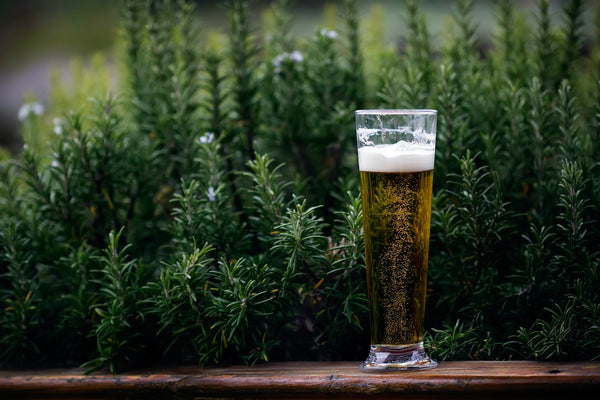You can crank out heavy squats and curls until your quads and biceps scream for mercy, and still you can’t seem to build the muscle you want.
What’s going on?
If you’re struggling to grow muscle despite your dedication in the gym, your problem most likely isn’t your workout, but rather your diet and lifestyle.
Building muscle is a complex science. It’s a coalescence of your training, your nutrition, your hormones, and your rest. So, let’s assume you’re doing everything right in the gym—following a good program and pushing yourself hard. Keep it up.
- How do muscles gain?
- How to tell if you’re gaining muscle or fat?
- Why you should gain muscles by eating more?
- How to eat to gain more muscles?
- Four foods need to avoid while gaining muscle
- 7-Day Muscle Gain Meal Plan
How do muscles gain?
Muscles are made up of the most basic muscle fibers, when you do strength training, you cause damage to your muscles, as a result, The injured muscle tissue releases a substance called Cytokines (cytokines-like), and the body receives the signal to repair the area of subtle damage, this process called muscle protein synthesis (MPS). After that, your muscle fibers will become thicken.
How to tell if you’re gaining muscle or fat?
The Marvoto Z2 body fat/muscles measurement will help you decipher between fat and muscle, it provides the accurate measurement of various body parts, including the fat and muscles data and ultrasound image display. So, you will get muscle fat analysis reports for each part of the body, see the change curve of body muscle fat and adjust your training.

But remember, each method varies slightly in terms of accuracy, but the most important thing to remember is to use the same method of testing initially and when interpreting results. This will ensure you have the most accurate assessment of any changes in your body over time.
Why you should gain muscles by eating more?
Muscle growth is a strenuous activity on your body, and calories provide the essential energy to make the process happen. To create muscle, you need to be in an anabolic state, meaning the body has enough fuel and energy to build and repair tissues, including muscle. When you're not in a caloric surplus, you run the risk of going into a catabolic state (aka when your body is breaking down fat and muscle) and gluconeogenesis (aka when your body uses non-carbohydrate sources, such as protein from your muscles, for fuel). The more calories you eat, the more fuel you have and less of a chance to become catabolic. Plus, when you're at a caloric deficit (eating fewer calories than you're burning), you can put stress on the body, which can cause the body to produce cortisol — a catabolic hormone that lowers testosterone and can be a cause for the breakdown of muscle protein.
How to eat to gain more muscles?
Bodybuilders, trainers , and diet gurus alike (at least those worth their salt) will tell you that bodybuilding is more than 50% nutrition. We tend to agree, especially where the beginner is concerned. The more serious you are concerned about your nutrition, the more serious your gains will be. Research shows that paying attention to macronutrients (protein, carbohydrates, and fat), calories, meal timing , and certain supplements will have a huge impact on your results.

1. Understand Your Calorie Needs
Eating more food seems like a tough pill to swallow for some people. But when gaining muscle, you’re generally looking to gain weight. If you don’t prep enough food, your workouts will backfire. You could experience weight loss and lose muscle mass rather than gain it. Generally, 250-500 calorie surplus is a good benchmark, you can adjust it as needed.
2. Add more protein to your diet
Making sure you’re eating enough protein is of paramount importance for two reasons:
- Proteins deliver the amino acids that form the building blocks of muscle. When intense weightlifting breaks down muscle protein synthesis provides the proteins needed to repair that muscle and spur it to grow bigger.
- Your body also looks to proteins to supply amino acids for producing hormones like insulin and human growth hormone, which can further drain protein reserves. A higher protein diet ensures you have more than enough to go around and shifts your body into an anabolic mode, one that builds tissues rather than breaking them down.
While the recommended daily allowance for protein is less than half a gram per pound of body weight, you should double that to a gram per pound of body weight to build muscle. That’s the maximum amount your body can use in a day, according to a landmark study in the Journal of Applied Physiology.
Your protein choices should come mainly from lean animal proteins such as chicken, turkey, beef, fish, eggs , and dairy. These are the most complete protein sources, meaning they provide your body with every essential amino acid.
3. Eat Every 3 Hours (roughly)
By spreading your calories out over, say, six meals spaced about 3 hours apart, you’ll avoid that full-belly feeling that can make you sluggish, and you’ll ensure your muscles get consistently stoked with protein and carbs. Your body needs a constant supply of macronutrients and micronutrients to operate properly, especially when it is being taxed by intense exercise.
Shoot for about 30 grams of protein per meal. That’ll get most people into the proper range for muscle growth.
4. Increase healthy carbohydrates in the diet
Eat about 2-3 grams of carbohydrates per pound of body weight each day. Protein is the most critical macronutrient for muscle growth, with carbohydrates a close second. When combined with protein, carbs could help fuel muscle growth. “Carbohydrates feed the mitochondria in the cells, which are the real powerhouses in terms of muscle growth. To gain mass, the 180-pound beginner will need 360-540 grams of carbs daily.
For most meals, stick with slow-digesting carb sources such as whole grains, oatmeal, sweet potatoes, beans, fruit , and vegetables.

5. Use cretine
Include 3-5 grams of creatine with your pre-and postworkout shakes. One of the most effective supplements to buy is creatine. Many scientists, doctors , and nutritionists agree that creatine works great for most athletes regardless of age or gender. After hundreds of studies have been conducted on the supplement, the consensus is that it’s not just effective but also safe. Taking creatine in monohydrate, ethyl ester or any other form can help you gain up to 10 pounds of lean muscle, boost your strength in the gym by 10% and produce a significantly greater pump during your workout, all with zero side effects, in just a few weeks.
Four foods need to avoid while gaining muscle
1. Highly processed foods
If you’re going for muscle gains, it’s best to avoid or seriously limit highly processed foods, which include things like sugary candies, sodas, sweets, and processed baked goods. They are inflammatory and can stress out your insulin response and increase cortisol (stress hormone) production, and inflate your daily calorie intake without adding valuable nutrients.
2. Fried foods
Fried foods are the enemy of fitness, they are high in omega-6 fatty acids, which can be pro-inflammatory, and low in nutritional value and protein—and can make you gain weight.
Menu descriptors can help you avoid these: fried, refried, loaded, covered, breaded, crispy, and smothered usually indicate something deep fried or inflammatory, which should be avoided.
3. Processed meats
Meat is great for growing muscles, but you should avoid taking in too much- processed meats, like beef jerky, sausages, these are also inflammatory foods, which will be caused inflammation in your body and competes with muscle growth. You can replace processed meats with chicken breast or lean beef.
4. Alcohol
There is nothing like garb a beer after the workout, but if you want to gain muscles, it’s time to cut back or eliminate booze. Alcohol quickly adds up in extra calories that offer no nutritional value, which can lead to increased body fat. It’s also been proven to impact protein synthesis, which is what helps build muscle. The morning-after effects of alcohol also mean that you might not make it to the gym or push yourself as hard—and even if you do, your muscles aren’t getting the chance to properly recover, an important part of building muscle.

7-Day Muscle Gain Meal Plan
Monday : 158g protein, 310g carbohydrates, 74g fat
Tuesday: 151g protein, 312g carbohydrates, 70g fat
Wednesday: 150g protein, 312g carbohydrates, 68g fat
Thursday: 160g protein, 310g carbohydrates, 70g fat
Friday: 160g protein, 315g carbohydrates, 75g fat
Saturday: 150g protein, 305g carbohydrates, 72g fat
Sunday: 160g protein, 300g carbohydrates, 70g fat


1 comments